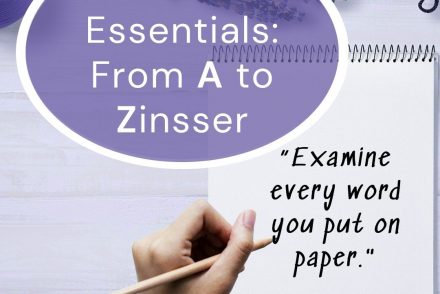
Craft Essentials
You May Be Done, But You’re Not Finished
“Rewriting is the essence of writing well; it’s where the game is won or lost. That idea is hard…
February 21, 2022
“Rewriting is the essence of writing well; it’s where the game is won or lost. That idea is hard…
February 21, 2022
Congratulations! You finished your book or fiction piece. You’ve made sure to develop your characters and nailed your GMC.…
January 27, 2022
Last month I shared three things I’ve learned on my way to becoming a soon-to-be-published middle grade author. I…
October 16, 2021
Published authors are often asked what their number one piece of writing advice is. Well, I’m not published yet,…
January 19, 2019